Freedom Struggle in Tamil Nadu - Early Nationalist Stirrings in Tamil Nadu | 10th Social Science : History : Chapter 9 : Freedom Struggle in Tamil Nadu
Chapter: 10th Social Science : History : Chapter 9 : Freedom Struggle in Tamil Nadu
Early Nationalist Stirrings in Tamil Nadu
Early Nationalist Stirrings in
Tamil Nadu
(a) Madras Native Association
The
Madras Native Association (MNA) was the earliest organisation to be founded in
south India to articulate larger public rather than sectarian interests. It was
started by Gazulu Lakshminarasu, Srinivasanar and their associates in 1852.
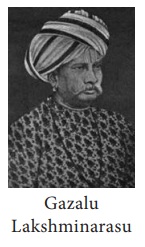
It
consisted primarily of merchants. The objective was to promote the interests of
its members and their focus was on reduction in taxation. It also protested
against the support of the government to Christian missionary activities. It drew
the attention of the government to the condition and needs of the people. One of
the important contributions of the MNA was its agitation against torture of the
peasants by revenue officials. These efforts led to the establishment of the Torture
Commission and the eventual abolition of the Torture Act, which justified the
collection of land revenue through torture. However, by 1862, the Madras Native
Association had ceased to exist.
(b) Beginnings of the Nationalist Press: The Hindu and Swadesamitran
The
appointment of T. Muthuswami as the first Indian Judge of the Madras High Court
in 1877 created a furore in Madras Presidency. The entire press in Madras
criticized the appointment of an Indian as a Judge. The press opposed his
appointment and the educated youth realized that the press was entirely owned
by Europeans. The need for a newspaper to express the Indian perspective was
keenly felt. G. Subramaniam, M. Veeraraghavachari and four other friends
together started a newspaper The Hindu
in 1878. It soon became the vehicle of nationalist propaganda. G. Subramaniam
also started a Tamil nationalist periodical Swadesamitran
in 1891 which became a daily in 1899. The founding of The Hindu and Swadesamitran
provided encouragement to the starting of other native newspapers such as Indian Patriot, South Indian Mail, Madras
Standard, Desabhimani, Vijaya, Suryodayam and India.
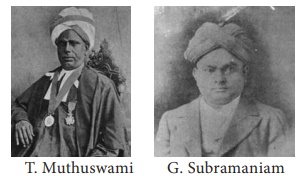
(c) Madras Mahajana Sabha
Madras
Mahajana Sabha (MMS) was the earliest organisation in south India with clear
nationalist objectives. On 16 May 1884 MMS was startedbyM.Veeraraghavachari,P.Anandacharlu,
P. Rangaiah and few others. P. Rangaiah became its first president. P.
Anandacharlu played an active role as its secretary. The members met
periodically, debated public issues in closed meetings, conducted hall meetings
and communicated their views to the government. Its demands included conduct of
simultaneous civil services examinations in England and India, abolition of the
Council of India in London, reduction of taxes and reduction of civil and
military expenditure. Many of its demands were adopted later by the Indian
National Congress founded in 1885.
(d) Moderate Phase
Provincial
associations such as the Madras Mahajana Sabha led to the formation of an
all-India organisation, the Indian National Congress Leaders from different
parts of India attended several meetings before the formation of the Congress.
One such meeting was held in December 1884 in Theosophical Society at Adyar. It
was attended by Dadabhai Naoroji, K.T. Telang, Surendranath Banerjee and other
prominent leaders apart from G. Subramaniam, Rangaiah and Anandacharlu from
Madras.
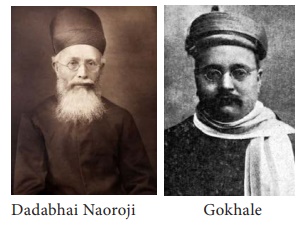
The first
session of the Indian National Congress was held in 1885 at Bombay. Out of a
total of 72 delegates 22 members were from Madras.
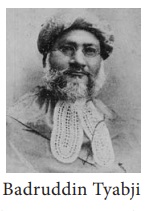
The
second session of the Indian National Congress was held in Calcutta in 1886,
with Dadabhai Naoroji in the Chair. The third session was held at Makkis
Garden, now known as the Thousand lights, in Madras in 1887 with Badruddin
Tyabji as president. Out of the 607 all India delegates of 362 were from Madras
Presidency.
Prominent Nationalists of Tamil Nadu in the Moderate phase
The early nationalists believed in constitutional methods. Their
activities consisted of conducting hall meetings and deliberating the problems
of the country in English. When, at the time of Partition of Bengal, Tilak and
other leaders adopted popular methods such as mass public meetings, and used
vernacular languages to address the larger public, the early nationalists came
to be known as moderates. The distinguished Tamil Moderates from Madras: V.S.
Srinivasa Sastri, P.S. Sivasamy, V. Krishnasamy, T.R. Venkatramanar, G.A.
Natesan, T.M. Madhava Rao, and S. Subramaniar.
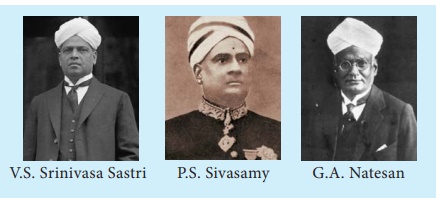
Tamil Nadu was then part of the Madras Presidency which included
large parts of the present-day states of Andhra Pradesh (Coastal districts and
Rayalaseema), Karnataka (Bengaluru, Bellary, South Canara), Kerala (Malabar)
and even Odisha (Ganjam).
Related Topics